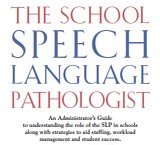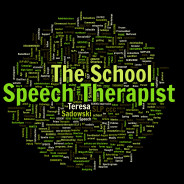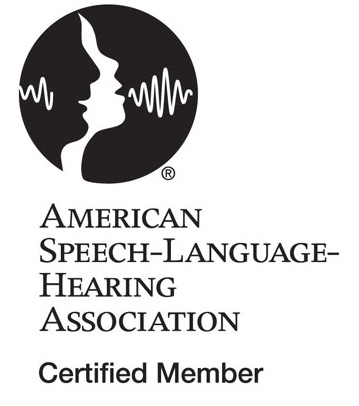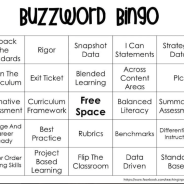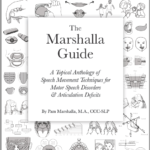Administrators: Know Your SLP’s

The biggest mistake administrators make is not getting to know their professionals. Often based on the decisions you make, things you say in meetings or even off handed comments you make it is clear to Speech Language Pathologists that you have no idea what we do, how knowledgeable we are, the resources we need to do their job better or even areas we address. When making big decisions especially those that involve procedure get your staff involved. You might be surprised at what your staff can offer. Teachers and other professional staff such as SLP’s can often be a feather in your cap if you listen to them rather than immediately disagree with them.
Learn the roll of every staff member and professional in your building or school. You never know when someone might have special training or experience to get you through a rough situation. Listen to what your staff has to say even if it’s an opinion. Successful administrators and school boards cannot have a myopic point of view. I’ve seen this happen and it does not create a strong, successful school system.
SLP’s are extremely knowledgeable. Our expertise goes beyond articulation therapy. We have training that goes way beyond academics. We know how the brain and body function together. We can pick out specific difficulties in children that can make life long differences if not remediated. We know about auditory development (not just hearing) and what happens to students who have difficulty with auditory processing, discrimination etc. We know immediately when your school system has a poor phonics program. We work on language development with severely autistic children, children with non-verbal learning disabilities and everything in-between. We work with children who have specific learning disabilities with average cognitive skills and those children who are severely learning impaired with low cognitive skills. Unless you’ve studied higher level language development you don’t have a clue it’s missing until it is almost too late. This list only hits the tip of the iceberg. I could go one and on ….. but I think you get the point.
Get to know you SLP’s and other professionals. Ask the questions and listen to them. It will only make you a better administrator.
Teresa
Thank You: Book Giveaway!
One year ago this month I published my first book The School Speech Language Pathologist, An Administrator’s Guide to understanding the role of the SLP in schools along with strategies to aid staffing, workload management and student success. I don’t have to explain to SLPs why I was compelled to write this book. It evolved first in my head, then as a powerpoint and then as a small book. Tired of feeling overwhelmed and disrespected, I pushed the completion of the book into high gear after winning a self publishing contract through my publisher Booklocker (which I highly recommend as a self publisher).
Publishing this book was a milestone in my life. To celebrate that and to thank my many followers, I want to give away 5 copies to active followers of my blog, The School Speech Therapist. To become an active follower, sign up through the feedburner link on the right. You will receive an email to activate your subscription. Winners will be chosen at random on April 30th 2016.
My book sales have been slow but steady. I’ve been pleased with the feedback I’ve received from other SLPs. I’m still working on getting it into the hands of those who need it such as school administrators. I’ll take any suggestions on how to do that. We all need to do a better job advocating for ourselves, our skills and our students. There is too much wrong with the way most of us service students in schools, primarily around workload. We have become blurred with teachers and most administrators don’t believe we have a lot to contribute. I’m rarely consulted on practices, policies or even student decisions beyond showing up to IEP meetings where they legally have to have us there. This book is just a start and I hope someone with more energy and better connections will expand the fight (yes unfortunately it is a fight at this point).
Thank you to everyone who follows The School Speech Therapist and my companion Facebook page. If you can’t wait to buy my book it is available through Amazon (see link below), Barnes and Nobel and through my publisher Booklocker.
Teresa
Scheduling and the SLP
This past week I participated in a chat on Facebook that focused on never leaving an empty space in your school schedule. I’ve know for years that when administrators see even a 15 minute block empty, they seem to think the SLP has a ton of time to spare. Not sure where this mind set comes from but I guarantee the school psychologist is not under the same scrutiny.
The fact that SLPs are having a discussion tells me there is something wrong with our situation. Either we are not respected as professionals or administrators really have no idea what we do. I’m going to go with the latter (because I can do something about that). I also know a lot of the squeezing we receive is because of budget. Administrators, especially those higher up the food chain are often not aware of our education, training and background. For some reason our profession has become aligned with teachers when we really should be aligned with the school psychologist. Many school systems are requiring our student goals to be in line with Common Core Standards when everything we we’ve ever been taught is based on child development. When and how did we let this happen? That’s an issue for another article but part of the underlying problem.
I don’t know about you but if I have a 15-30 minute block free I’m usually doing one or two of several things. I might be catching up on time because I’m running late with my sessions, I might have a report (or two), an IEP, medicaid paperwork or progress reports to work on. I might take that “extra time” to do an observation for RTI. I might do a make up session. I might find a teacher or other professional to consult with. I might test one of my students with a short attention span. I might take the time to prepare materials for my sessions. I might be responding to emails or contacting parents. I might even take the time to research or consult with another therapist on a puzzling case. You get where I’m going with this. First I really don’t believe our administrators know all the little things we do and that is our profession’s fault. Second, I don’t believe (some) administrators feel we can be independent without goofing off, that’s insulting. Third, I don’t believe administrators realize how much work we end up doing at home (teachers have the same problem).
When I complete my final schedule I always list all possible activities I might be doing during an empty block. One person in the Facebook chat mentioned that they put a question mark when scheduling their “lunch?” block because they never feel lunch is a guarantee. Reality is we have different paperwork responsibilities and need extra time in our schedules to at least get started on those activities. “Prep time” negotiated with or given to teachers does not fit our needs. We’re writing legal documents that have to hold up in court. It’s hard to write a coherent document in small blocks of time.
In the hopes of giving administrators a better idea of our role and all that we do, I wrote a book just for them. The School Speech Language Pathologist, An Administrators Guide to understanding the role of the SLP in schools along with strategies to aid staffing, workload management and student success. In this book I talk about all the little things we do, the time it takes to complete tasks, schedule solutions and so much more.
Several years back I wrote a somewhat related article called Proactive Scheduling. Using the process outlined in the article, the entire special education staff was scheduled in June for the following year. It was one of the my best professional experiences. Not only did it save massive amounts of time in September, we were able to start seeing students day one. My team facilitator initiated this scheduling process. Not only did it give her a clear picture of staffing needs she also understood our workloads. Since she took an interest in the process she never felt the need to question our time management.
March 2, 2016 Read Across America Day
March 2nd is The National Education Association’s Read Across America Day. Read more about it on the NEA website . Does your school do anything special for the Event. My school usually does a little something to rah rah reading. While this is a very important event, don’t forget to encourage your students or your children to read all the time. Reading is a great way to develop language, vocabulary and background knowledge.
Lots of cute t-shirts out there to celebrate the day and of course the required Dr. Suess hat
Are accommodations taking the place of specialized instruction?
Several years back the powers that be came up with RTI or Response to Intervention. Seriously what a semantically flawed title. RTI was interpreted and implemented differently in every school system based on the administration’s perspective. At first I disliked RTI, I felt it was a program that delayed needed services. RTI also suggested that accommodations could be a cure all for students who struggled.
Then for a while, I thought RTI was really working and it did for some kids. It was very dependent on the understanding/knowledge of the RTI team and willingness to put effort into the process. Teachers were beginning recognize weaknesses/issues and bring up names of at risk students sooner. However, looking back I think the names were brought up because teachers were more concerned that the student in question would not do well on state wide testing without accommodations. (It’s amazing how those students got fast tracked.)
There has to be some sort of a referral process but I’m still not convenience RTI is an effective model. RTI is set up to be a regular education service. Who makes up the RTI team will determine the quality of the accommodations presented. I’m just not convinced that those without a special education background can identify the possible weaknesses and make the proper suggestions for accommodations. Some school systems include a School Psychologist as part of their RTI team which is a big plus moving the process along in a more efficient manner, perhaps even skipping right into formalized evaluation.
Basically what comes out of Tier I and Tier II RTI levels are a lot of accommodations, many suggestions and a few observations. The teacher is instructed to put the generated accommodations in place to see if that works first. This makes perfect sense with some students but not all. With more involved students it’s 12 weeks or more wasted collecting data on accommodations. In many cases accommodations that a special educator, SLP or School Psychologist could tell you are not going to target the student’s specific underlying needs. Developmentally, 3 months is a very long time for a struggling student.
What is happening to the student during this long period of time without specialized instruction? Gaps in learning are going to emerge making it even harder for a student to catch up, school is going to get more difficult and confidence will flounder. Only those educators with a strong special education background are going to understand the underlying consequences.
Now look at IEPs, we actually have a section for accommodations in the document. Yes, most students will benefit from some accommodations. Some disabilities must have accommodations. However, since the advent of RTI and state wide testing the list of accommodations written into an IEP has grown significantly. Do accommodations without instruction, models and guidance really work? When it comes to accommodations, (written in RTI, 504s or IEPs) that is only one of many questions to be asked.
- Are we giving a false impression to parents and teachers that accommodations are going to cure the problem?
- Are students passing both classroom tests and state wide exams only because they are given every accommodation in the book?
- Do we provide so many accommodations without needed instructions that students have a false sense of their own capabilities and success?
- Are we teaching kids to expect the world to accommodate them in all situations? (Imagine the implications with college and work situations)
- Are we keeping kids from understanding their issues and disabilities, not holding them responsible for their behavior and learning?
- What is wrong with the system if we have to provide accommodations for so many students?
- Are individual accommodations needed because the need for universal supports and expectations has been ignored?
- Why would a special education national screening program be set up in a way that those suggesting accommodations do not have the educational background to understand learning disabilities and weaknesses?
- How can accommodations work when the underlying issues have not been formally identified or recognized by specially trained staff?
Every time I sit down to write accommodations for my speech and language students I focus on if the accommodation is needed, will it be effective, can it actually be implemented on a regular basis, will teachers/parents understand what an accommodation will achieve and will the accommodations keep the student from achieving higher expectations. I know one of the reasons I write so many accommodations, in an IEP, is to try to impress upon teachers (and those working with language disabled children) that language disabilities affect all aspects of learning. I also have the advantage of working on the underlying language needs and to help the student develop their own understanding and strategies for success.
Increased reliance on accommodations less specialized instruction is just a trend I have observed since the implementation of RTI and state mandated testing. Has your experience been the same?
Reading and understanding social context is key to good pragmatic skills
Today I am publishing a retread article I first wrote for examiner.com back in 2012. I thought about this article after presenting a paraprofessional training last week. The attendees asked if I could give them some specific examples of pragmatic difficulities in more typical students. While I was able to provide examples, my response wasn’t as organized as I would have liked. I think I will be sharing this article (or improving on the article) next time I present to paraprofessional or parents. As always suggestions and comments welcomed. Teresa
Reading and understanding social context is key to good pragmatic skills
When kids are taught “context” most classroom teachers are usually referring to the context of a story. Students, especially the ones who have non verbal learning disabilities, aspergers or even just lack social experience may not understand the “context” of social situations. Not understanding the context of a social situation may cause misunderstandings and this is where difficulties arise. Students may not understand when they are being teased or even bullied. They may not be able to distinguish bullying from playing around. They may not “get” the jokes. They may not understand sarcasm.
The students who for what ever reason miss or misinterpret social cues, social language or social context, are the kids who fall through the cracks. These students are usually bright enough to pass standardized tests. They’re usually doing well enough in the classroom to get by. Classroom teachers know something’s wrong but they just can’t put their finger on it.
Whenever teacher’s or parents suspect needs within the social skills area, it’s just as important to make a referral to the student support team. General supports may help a little but they will not significantly aid this type of disability.
So what’s going on? At that point it’s important to take a look at the child’s manner of performance and general interactions in both structured and unstructured situations. A skilled speech language pathologist or school psychologist will easily identify children who miss or misinterpret social cues on a regular basis. Those professionals will recommend further formal assessments if necessary. You many also begin to hear the term “pragmatics”, which is the all encompassing professional term for children who demonstrate needs in the social skill areas.
Administrators tend to say, “Just put them in class where they can practice their social skills.” That’s not the solution. Most people don’t understand children or even adults who have difficulty in the pragmatic realm. They can’t remediate social skills on their own. People with pragmatic difficulties may not even understand or realize what they are missing or misinterpreting. If remediation of pragmatic skills was that easy or automatic we wouldn’t have kids or adults with these issues. The reality is that these kids need some therapy, instruction or coaching, whatever you want to call it. Just like reading and math, awareness, learning and carryover of appropriate pragmatic skills is not going to happen without intervention.
Students need to learn about social context, how to analyze it and how to read it. You have to keep in mind that even with good instruction, pragmatic skills will probably always be an area of weakness the student. It’s important to give them the best tools possible. In most school systems either the School Psychologist, Speech Language Pathologist or better yet a combination of both will service the student with pragmatic needs. There are specific programs out there to address social skills or pragmatic development. However, it is just as important to learn and practice pragmatic skills in a naturalistic context.
Below are some beginning suggestions to help students raise their awareness around “reading situations” which aids understanding of social context. Many of these beginning skills are also referred to as learning to recognize and interpret nonverbal language.
- Look at the relationship of the person or persons involved. Is it a family member, a close friend, a stranger, a teacher or other respected adult. Go over several examples of how they might approach or react to different people.
- What is the tone of the interaction. Is it a happy situation, mad situation, sad situation. Go over several examples of this, be dramatic if necessary. Most children can tell what tone their parents are using so begin with that as an example.
- Are the people using sarcasm? How do you tell? Is someone joking around or are they serious. This takes a lot of practice. Even during role playing sometimes the kids aren’t sure if examples are serious or not. To see the confused look on their faces tell it all.
- Facials Expressions….It’s extremely important to know how to read those. You have to be aware and know what to look for. This come easy for most of us but for people who have difficulty with this pragmatic skill or have difficulty making eye contact it’s challenging. You miss a lot of nonverbal cues thus contributing to misinterpretations.
- Gestures…same as facial expressions you have to look for them and interpret them correctly to help understand intent.
- Mood….What is the mood of the situation. How can you tell? Did something just happen to make the person angry? In that case you will approach the situation differently. This again could invite a variety of emotions and all have to be figured out.
Most people develop pragmatic skills so naturally it’s rarely noticed. Even people who don’t have a specific diagnosis, associated with difficulties in the pragmatic realm, may misunderstand or misinterpret social situations. These suggestions are just the tip of the iceberg when beginning work on improving awareness and understanding of social context and overall pragmatic language development. Children who experience pragmatic difficulty have to be walked through almost every misunderstood situation for meaning and intent until they can start to do it on their own. It is highly suggested that a professional with experience working with pragmatic skill development be consulted.
Explain, explain and explain some more. If you have a child who frequently misinterprets social situations talk to them about it all the time. Let teachers and other adults they encounter know about the struggles your child has. Talk about how to handle situations and how to react to situations. If you know the child is entering a situation that may be difficult for them to understand, be proactive and prepare them for the situation. Talk to them about what to expect and how to handle a situation. Remember, you are your child’s best teacher and advocate.
Read more of my articles on Examiner at http://www.examiner.com/speech-pathology-in-boston/teresa-sadowski
Speech Language consultants and school contracts
One of the most challenging things about promoting a niche book is how to get it into the hands of the people the book is meant for. I’m sure most of my book sales have been to SLPs who hopefully share it with their administrators or at least find it supportive.
A couple of weeks ago I received a message on Facebook from a consulting service, mentioning that they purchased a couple of my books. The purpose of their purchase was to give the books to school administrators. The information I provided in the book not only explained the role of the SLP in schools, it helped outline and justify time needed to properly service the schools they contract with. I was blown away and thrilled. I had not even thought of this as a use for my book The Speech Language Pathologist, An Administrator’s Guide to understanding the role of the SLP in schools along with strategies to aid staffing, workload management and student success.
Where I live most schools provide their own staff to service Speech and Language students. Occupational therapy and physical therapy are more likely to be contracted out because they service fewer students. However, there are a few schools in my area that contract out to hospitals and agencies. I do believe this practice is seen more often in urban areas or areas where SLPs are hard to find.
Agencies who contract to schools, probably have to maintain a delicate balance with schools to develop and maintain contracts. School administrators in most situations probably base their needs on the time written into the IEPs or number of students. The problem with this is that an SLPs workload far exceeds the number of hours spent on direct service.
The School Speech Language Pathologist, An Administrator’s Guide to understanding the role of the SLP in schools along with strategies to aid staffing, workload management and student success, is organized to first explain the role of the SLP, what areas we service and who we might service. Then the book goes on to explain the workload tasks involved, time needed to complete workload tasks and variables that may increase both direct services and workload tasks.
If you are a speech and language consulting service looking for a guideline you can offer schools, this book might be right for you. Please take a look at reviews on Amazon or read excerpts on my publisher’s site, Booklocker.
Teresa
Caseload and Workload article review
I found what I think is a fairly new article on ASHA focusing on Caseload and Workload. The article makes a fair attempt at explaining workload vs. caseload. There are a few points I would disagree with in the article but for the most part it does a good job of explaining that some students just require more man hours than others based on their disability.
This is an article obviously written for school administrators, yet I doubt many administrators have even taken a look. The article is a little muddy in the middle on how to determine a workload analysis. But at least it brings up the topic. I don’t feel a workload analysis has to be that complicated. However, I guess even administrators have to show their data.
Caseload and Workload also presents several alternative therapy models. Again the explanation of the models is a little unclear even with examples. I think alternative scheduling approaches are good to consider as long as direct therapy is not compromised. As we all know larger groups and in class services does not often provide language disabled students with what they need to become more efficient. It is also important to note that alternative scheduling approaches may work in one community and not another, totally dependent on need, school schedule, parental influence and flexibility of administration.
On page two the article talks about how a higher caseload impacts intervention. This is not something we’re really able to advocate for in schools. I am glad ASHA is opening the door on that.
This article didn’t hit all the topics and factors that impact workload but ASHA is getting closer to the real problems. Workload and Caseload is probably written for SLPs to either implement on their own or to share with administrators. It is a good start and many of the ideas go along with what I’ve covered in my book The School Speech Language Pathologist, An Administrator’s Guide to understanding the role of the SLP in schools along with strategies to aid staffing, workload management and student success. Since part of the source for the article was the ASHA 2014 Schools Survey, I imagine that many SLP’s find workload a significant issue since most schools focus almost solely on caseload numbers/hours of direct service.
Is your school doing anything unique to manage workload?
Side note: The article states “the SLPs first responsibility is to provide educational services on his or her caseload”…It goes along with ASHA position on CCSS. I’m going to disagree with that till the day I die. I am a therapist not a teacher. For at least 20 of my 30 years as an SLP my job was to teach underlying language skills so students could access the curriculum and use language efficiently. All of a sudden the rules changed and we have to create goals based on curriculum standards not language development. Which means therapists in private practice are servicing students differently than we are. Not to mention our testing is not usually grade leveled nor are our materials. That’s my rant for the day
The School SLP-book reviews
Last April I introduced my first book The School Speech Language Pathologist, An administrators guide to understanding the role of the SLP in schools along with strategies to aid staffing, workload management and student success. It has been a lot of fun working on book promotion and I’ve received almost 100% positive feedback from other SLPs. Several SLPs have mentioned that they have good enough relationships with the administrators to share the book. Yeah! Two SLP’s reported that their administrators asked to peek at the book (double Yeah!).
Two SLP bloggers have been kind enough to highlight my book on their blogs. I want to share their perspectives with you. Both of these blogs are very professional and interesting so take a peek around their sites while you’re there.
The first review was written by SLP Darla Gardner: Ms. Gardenia’s Speech Room
The second review was written by SLP Mandi Schaumburg: Panda Speech Therapy
The School SLP can be purchased through a number of sites including AMAZON (see link on this page), Booklocker (my publisher) and Barnes and Noble
Thanks to both Darla and Mandi for taking the time to The School SLP. Any ideas on how to get this book into the hands of administrators is greatly appreciated.
Concerts: Don’t forget your ear plugs
After taking a little bit of a hiatus from blogging due to vacation it is really hard to get started again. I lugged my computer 3000 miles with the hopes that I would get some writing and book promotion done but that didn’t happen. Since school got out I’ve jotted down several ideas for articles but never quite found the time or passion to develop them. Well, it’s time to get back on track.
This past weekend I attended the first concert I’ve been to in over two years. It was some old rockers but it was still loud. Ear protection did not even dawn on me until the break between bands where next to the beer line was the table selling ear plugs. At that point I flashed to the generic package of disposal ear plugs purchased after the last concert two years ago sitting in a drawer at home.
As an SLP I’m embarrassed by the fact that I didn’t even think of ear plugs until I saw them being sold. I gladly forked out the $15 dollars and figure if I liked them I could at least get a short blog post written about them. And of course protect my hearing.
The brand being sold was ETY Plugs from Etymotic Research. I wish I had another brand to compare during the concert but I was fairly impressed with the sound quality when the ETY plugs were in. How can I describe it……It was more than just muffling the sound, the plugs seemed to filter out the static like noise. Of course it did not make it sound a recording but I think I heard the lyrics a little better. Clapping sounded muted and I did have to remove the plugs to speak to others.

The design of the ear plugs allows for a consistent seal (even a better seal after I got home a read the instructions). These ear plugs are reusable and do need to be cleaned. I used a little soap, water and a q-tip. Even without a comparison, I think I could recommend ETY Ear Plugs for concerts. My generic plugs just muffled sound.
That old quote “If it’s too loud, then you’re too old”, was coined by DJ Ernie Anderson and popularized by Ted Nugent, use to sound so cool. Today, given my age, experience and my un-coolness I would probably scold Ernie and Ted and tell them to change it to “If it’s too loud, use common sense”. Now I just have to remember to bring my ear plugs to the next concert.
A side note….Some real jerk of a Dad (sorry Dads) had his 4 or 5 month old baby bouncing on his shoulders. The baby did not have any ear protection and looked like a deer caught in the headlights. As the guy was trying to get as close as he could to the stage, I saw one of the workers tell him to get the baby out of there. No Mom in sight. Made me cringe.
Related Posts
NSSLAH at Assumption College
Hearing Health in Children and Adults
Buzzword Book Give-a-way
Hearing about which buzzwords bother you the most was a lot of fun. Every single one of the words submitted were irritating in their own unique way. I chose two that I thought were the best worse buzzwords.
The first buzz word selected was submitted by Patricia. Her word was “rigor” and for the obvious reason, it makes Pat think of death. I have to admit I also flash to an episode of Law and Order, with the pathologist saying, “TheThe body was in full rigor” every time I hear that word used in school. If they are going to use the word ‘rigor” in education why just use the word “rigorous” it makes more sense.
dictionary.com lists the following meanings for the word “rigor”
noun
1. Strictness, severity, or harshness, as in dealing with people.
2. The full or extreme severity of laws, rules, etc.
3. Severity of living conditions; hardship; austerity:
The rigor of wartime existence.
4. A severe or harsh act, circumstance, etc.
5. Scrupulous or inflexible accuracy or adherence:
The logical rigor of mathematics.
6. Severity of weather or climate or an instance of this:
The rigors of winter.
7. Pathology. A sudden coldness, as that preceding certain fevers; chill.
8. Physiology. A state of rigidity in muscle tissues during which they are unable to respond to stimuli due to the coagulation of muscle protein.
9. Obsolete. stiffness or rigidity.
The synonyms listed for ‘rigor” are even worse
inflexibility, stringency. cruelty (these are 3 words I always like to associate with education)
I understand rigorous curriculum (don’t like it but I get it) but I started thinking this word must mean something else in education. After a little research I found this page in The Glossary of Educational Reform defining “rigor”. Basically Educational Reform has redefined the word and made it way more confusing. I predict this buzz word will quit buzzing in a few years unless Webster’s adds it maybe as a new slang in 2016.
Kim suggested the word “Modify.” I chose “modify” because of her reason for disliking “modify” and because of my own personal experiences with this buzz word. Kim wrote, “Modify in theory is fabulous. However, in practice this buzz word often lacks depth in its application, is laden with inconsistency & often does not live up to its full intended potential.” Couldn’t have said it better myself. We write and suggest modifications all the time but who is responsible for modifications and who monitors them is a whole other story.
“Modify” became a big buzz right after “RTI” (response to intervention-a buzz word in itself and worthy of its own article) came into play. I remember the confusion between Modifications and Accommodations. I also remember our team leader having to present several times on the differences between the two. If I had to sit through that lecture one more time I might have started pulling my hair out. Now another buzz word submitted was “differentiated instructions” which in my mind is the same as modifications (but I bet it isn’t). I tried looking it up in that glossary mentioned above but it wasn’t there.
The other buzz words mention also deserve comment as runners-up.
Kudos-Yeah that gets said a lot. It’s one of those word that if you hear too much there is usually something wrong or something being nervously covered up. It ranks right up there with everyone talking about how nice, cute or sweet a child it. In meetings that’s code for you have a child who has something going on.
Servicing-I think I might be guilty of this one but not with parents just with staff. As Shannon suggests, this is a word that gets misused. “We are not “servicing” children, we provide a service. Sheesh- sounds like we are changing a transmission, not providing speech therapy!” to quote Shannon.
Using “no longer eligible” rather than “dismissing” from therapy is another one that makes us sound high faulting to parents. I think it must be in the team leader training because students have to be eligible for services. I think they are taught to use that word. However, there are some situations where that language might need to be used because most of our language students will never develop strong language skills.
Pre-determining Services-This was actually a very good one that leads to another question. Why are school SLP’s in many areas not allowed to diagnose or recommend specific direct speech and language services in their reports? It’s frustrating that a lot of the time the expertise of the school based SLP is not respected, welcomed or even considered when determining programming. (I’m keeping this one for a future article.)
Thank you all for your submissions. Patricia and Kim will be receiving copies of my book.The School Speech Lan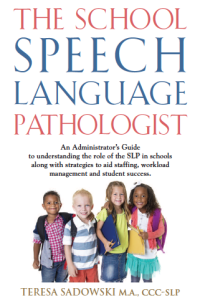 guage Pathologist, An administrators guide to understanding the role of the SLP in schools along with strategies to aid staffing, workload management and student success.
guage Pathologist, An administrators guide to understanding the role of the SLP in schools along with strategies to aid staffing, workload management and student success.
Keep the buzz word coming. Some are just so absurd. Luckily we don’t have to listen to many for long since they come and go so quickly.

